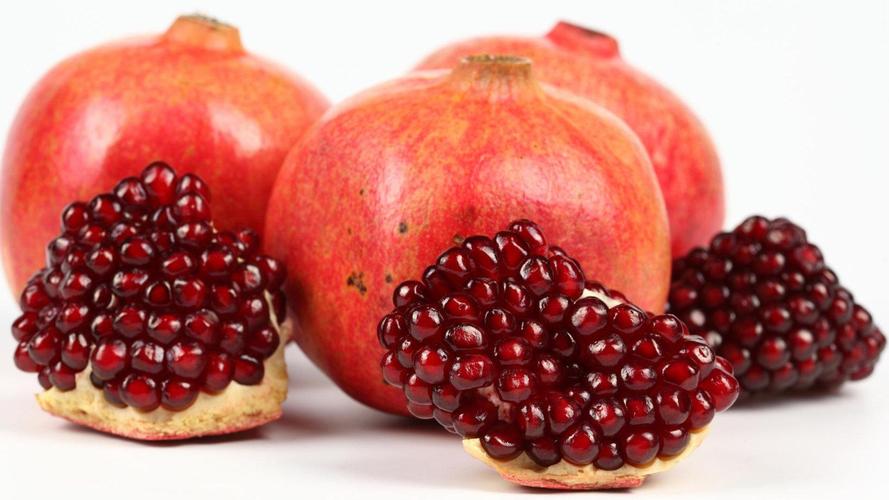Botanical Information of Pomegranate
-
Family: Lythraceae
-
Genus: Punica
-
Binomial scientific name of plant: Punica granatum L
-
Synonyms: None
-
Harvest Season: From August to October
-
Parts of the Plants: Fruit
-
Botanical Information: The pomegranate (Punica granatum) is a fruit-bearing deciduous shrub in the family Lythraceae, subfamily Punicoideae, that grows between 5 and 10 m (16 and 33 ft) tall. The name pomegranate derives from medieval Latin pōmum "apple" and grānātum "seeded". Pomegranates are round, red fruits. They feature a white inner flesh that’s packed with crunchy, juicy edible seeds called arils. Pomegranates are low in calories and fat but high in fiber, vitamins, and minerals. Benefits include antioxidants, heart health, urinary health, exercise endurance, and more. Pomegranates are rich in antioxidants and polyphenolic compounds, including punicalagins, anthocyanins, and hydrolyzable tannins. Getting antioxidants from fruits such as pomegranates is a great way to support overall health and prevent disease. Eating pomegranates may help prevent the inflammation associated with these chronic conditions. This is largely attributed to compounds called punicalagins, which have been shown to have antioxidant and anti-inflammatory properties. Pomegranate has been observed to have anticancer effects. It may slow tumor growth and spread and reduce inflammation.
Potential Health Benefits of Ellagic Acid
Ellagic acid is a natural polyphenolic compound found in various fruits and vegetables, particularly in berries, pomegranates, nuts, and certain seeds. It is well-known for its potent antioxidant and anti-inflammatory properties. Ellagic acid is a powerful antioxidant that helps neutralize free radicals in the body, reducing oxidative stress and protecting cells from damage. This can help lower the risk of chronic diseases, including heart disease and cancer.Ellagic acid has been shown to inhibit the growth of cancer cells and induce apoptosis (programmed cell death) in various types of cancer, including breast, prostate, colon, and skin cancer. It may also inhibit the metastasis of cancer cells and prevent the formation of new blood vessels that tumors need to grow (anti-angiogenesis).The anti-inflammatory properties of ellagic acid help reduce inflammation in the body, which can benefit conditions such as arthritis, inflammatory bowel disease, and other inflammatory disorders.Ellagic acid may improve cardiovascular health by reducing blood pressure, lowering cholesterol levels, and preventing the oxidation of LDL cholesterol, which is a key factor in the development of atherosclerosis.
Application
–Food Supplements/Nutritional Supplement
–Functional Food
–Pharmaceuticals
Form as Capsule, Tablet, Powders, Blending Powders
Notice: The product information here is for general informational purposes only. The statements in this website have not been evaluated by the Food and Drug Administration or any other regulatory body or organization. These products are not intended to diagnose, treat, cure or prevent any disease.







Reviews
There are no reviews yet.